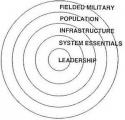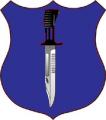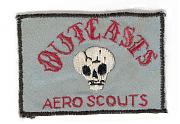Dear CavGuy,
Thanks for your continued interest in our work. We're looking forward to reading your reply in International Organization.
For those who are interested, I'd simply note that we posted the replication data, including the exact codes for statistical replication, on my website in April (the article was published in January 2009). In January, we also posted the codebook, supplemental analyses, and cases (286 of them).
http://www.princeton.edu/~jlyall/
Though IO does not have a replication policy, we hoped that this dataset will be used, and improved upon, by other scholars, and so we released it. By making it available to all parties (it's been downloaded more than 50 times since posting), we aim to provide a public good.
Are there limitations with these data? Of course. But rather than flaming us anonymously on a chat forum, perhaps it would be a good idea to open the dataset, look at what we've done, and then make efforts to improve upon it. That way, we all win, and we move the study of COIN forward.
Anyways, just wanted to set the record straight.





 "A Sherman can give you a very nice... edge."- Oddball,
"A Sherman can give you a very nice... edge."- Oddball, 
 by doing that one thing alone we could solve a whole bunch of problems. From the SWJ Homwe Page!
by doing that one thing alone we could solve a whole bunch of problems. From the SWJ Homwe Page!




 ) model is accepted, then, I would argue, it only holds true while all of the sides involved accept the basic parameters of that model. But such a situation is what gives rise to variable asymmetries in the first place: a rejection of those parameters (aka "conventions"). I think that this is pretty clearly illustrated in both the primary AO of AQ (i.e. communications) and during the Millenium Challenge wargame when GEN Van Ripper showed how false those parameter assumptions were.
) model is accepted, then, I would argue, it only holds true while all of the sides involved accept the basic parameters of that model. But such a situation is what gives rise to variable asymmetries in the first place: a rejection of those parameters (aka "conventions"). I think that this is pretty clearly illustrated in both the primary AO of AQ (i.e. communications) and during the Millenium Challenge wargame when GEN Van Ripper showed how false those parameter assumptions were.


Bookmarks